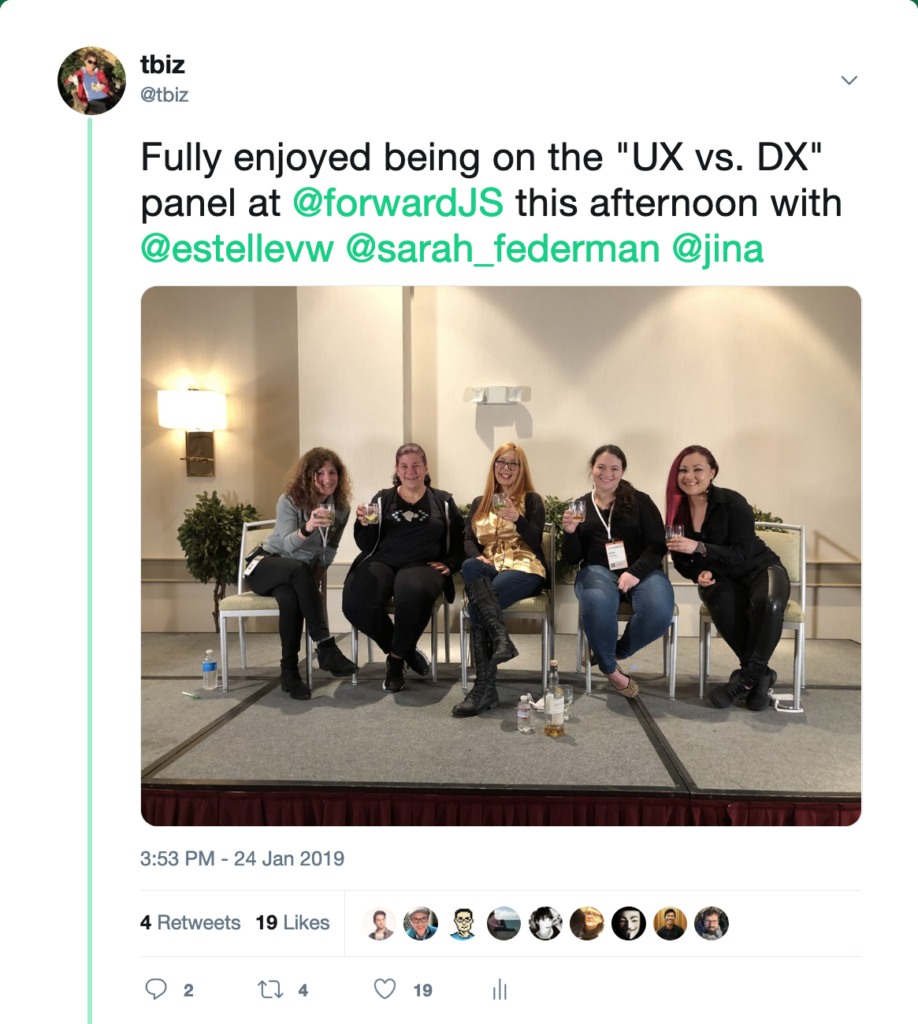I was introduced to Estelle Weyl through my colleague Ali, who suggested Estelle as a speaker for Mozilla’s speaker series. I was intrigued with Estelle’s teaching on the differences between how we as humans perceive the speed and performance of our web browsers (vs. the precise, technical “reality”).
She was of course great, and her final slide also called out another important distinction:

So how fun was it when, a bit over a year later, she invited me to moderate a panel on, yep:

We had Tomomi Imura of Slack on board, and were super fortunate to recruit Sarah Federman (newly) of Atlassian and Jina Anne.
This group was so amazing, they agreed to meet on a holiday before the event to huddle. It was there that the subtitle emerged:

We realize we hadn’t intended it, and while we didn’t want to make the Lakoff mistake, we did think it was cool.
So, whiskey it was.


Oh also, the conversation was as great as these women. Estelle and Timomi had previously posted different ways to tackle this. Estelle defines DX as “the methodologies, processes, and tools (frameworks, libraries, node modules, pre- and post-processors, build tools, other third-party scripts, and APIs) by which developers develop web applications for their user base.”
And, because developers are often users too (think developer tools, and of course, frameworks), Timomi approaches their DX in a way that exhorts developer tool makers to keep the developer experience – as users – in mind.
So as a group, we broke this down further, looking at why some developers may be tempted to not think about the UX (whether those users are developers or not, per above), and instead adopt a “resume-driven development” approach (h/t Estelle again) that favors them showing off knowledge of sexy new frameworks vs. delivering a solid UX.
There are also work culture pressures to deprioritize UX. Ship fast or first or cheap, user-be-whatevered, can be a hard force to combat when it comes from management.
But, as others pointed out, developers can still make the choice to not be overly-reliant on tools or frameworks so they can choose the best route for the end-users. Individual engineers can ask forgiveness vs. permission in adopting a user-centric, front-loaded design approach from the start. Finally, to steal (again) from Estelle:
Taking the time to do it right the first time is “fast to code”. Refactoring is not. If you keep the six areas of concern — user experience, performance, accessibility, internationalization, privacy, and security — at top of mind while developing, your finished product will be usable, fast, accessible, internationalizable, private, and secure, without much effort.
Estelle Weyl